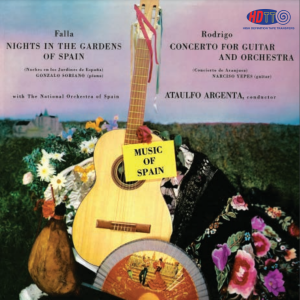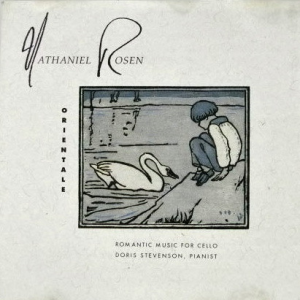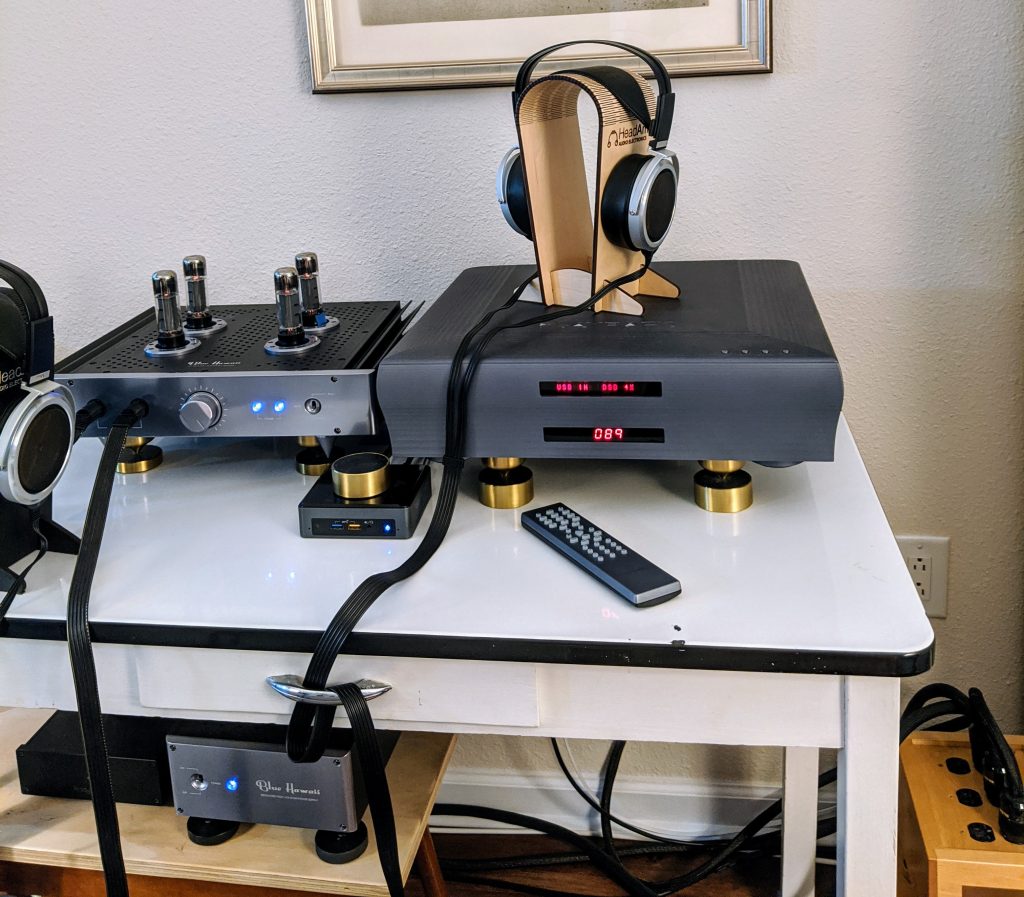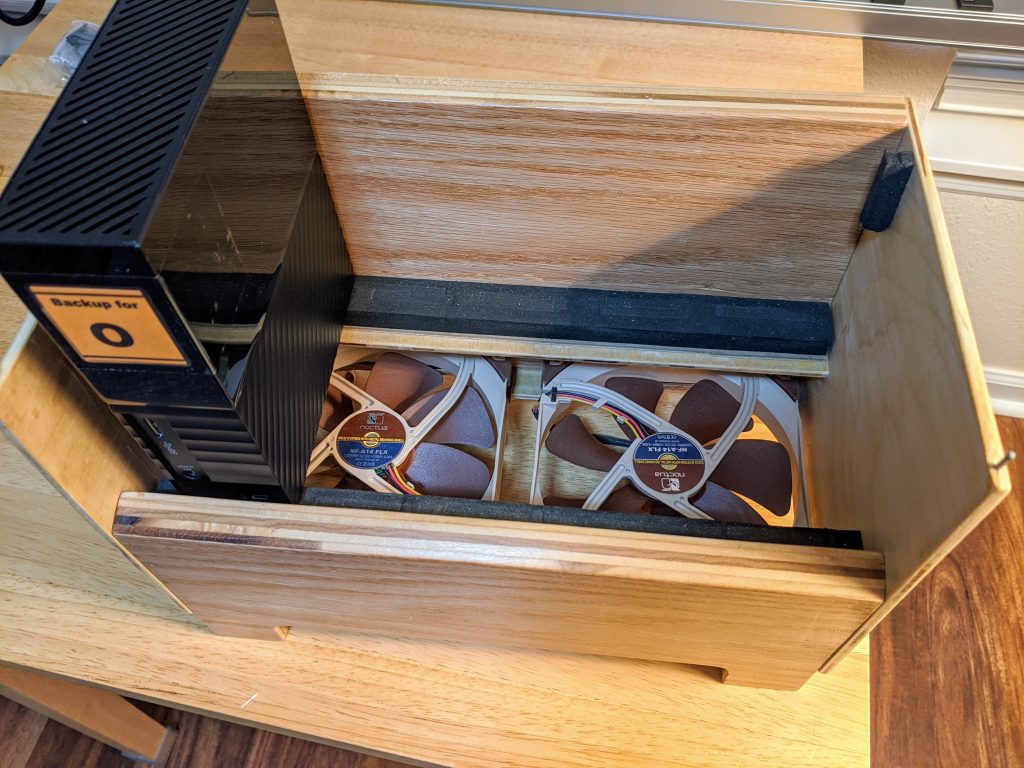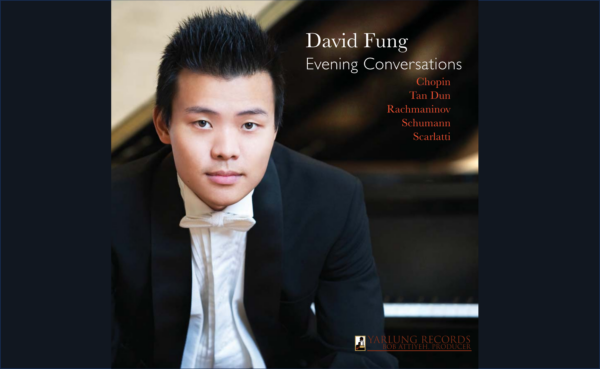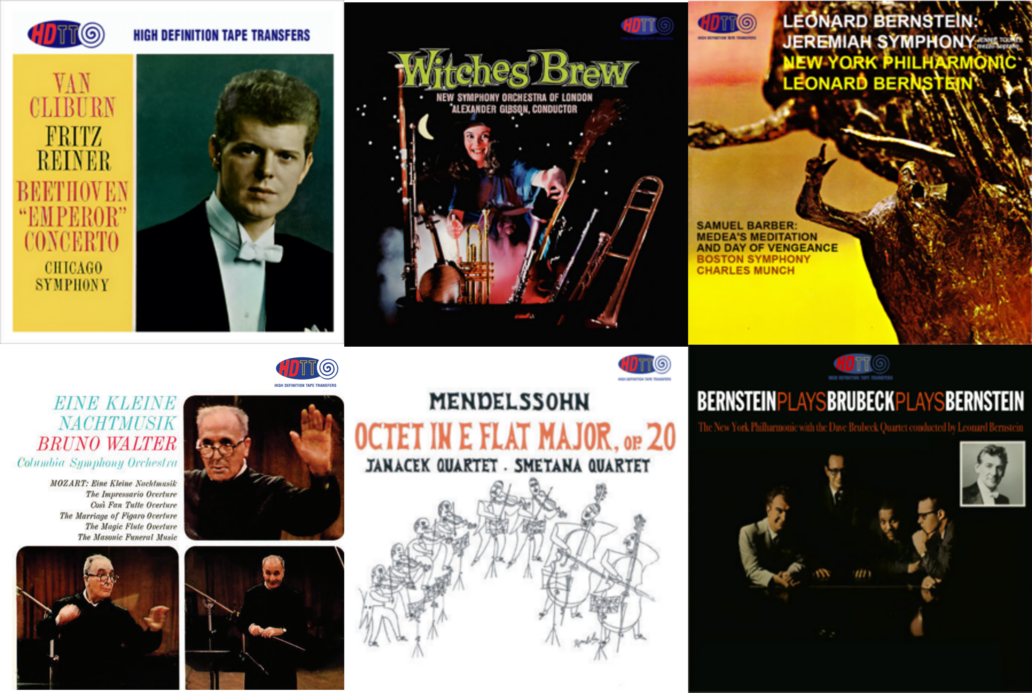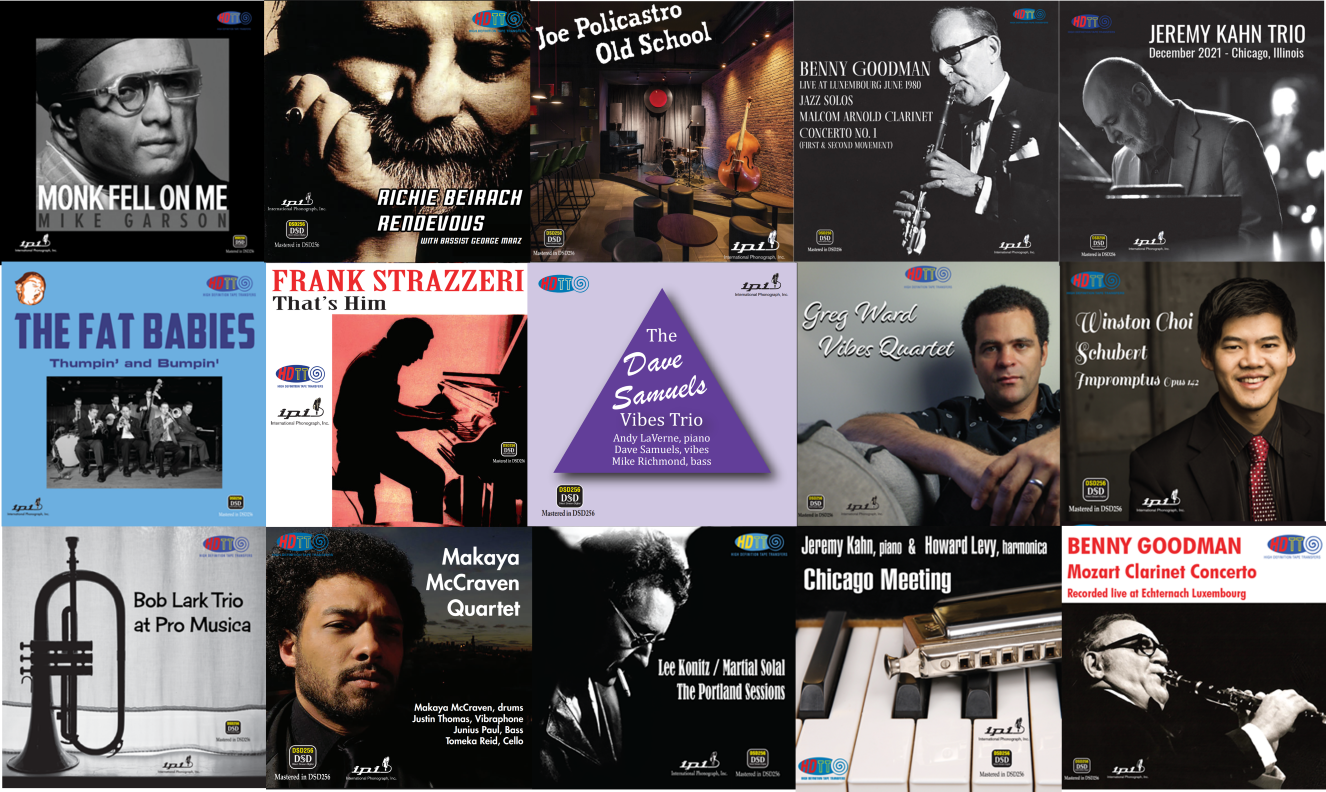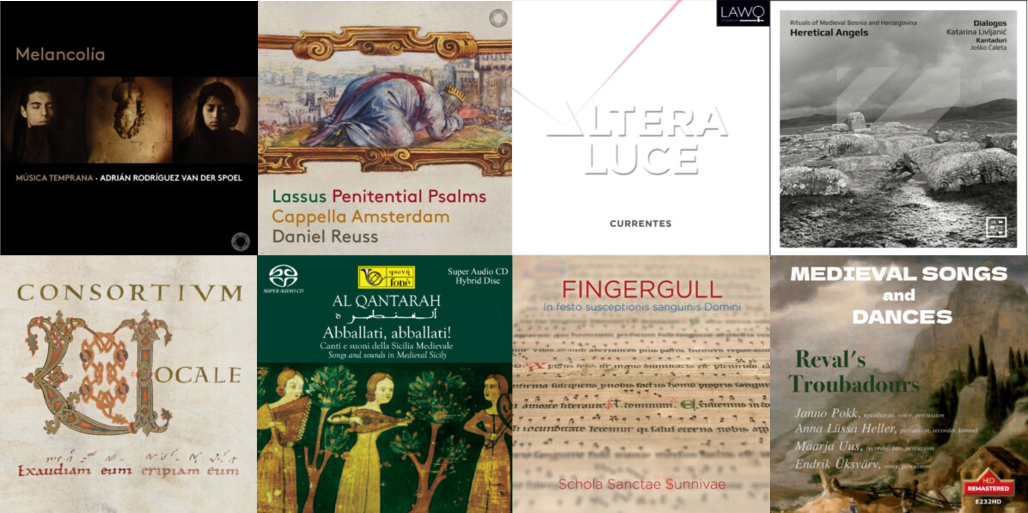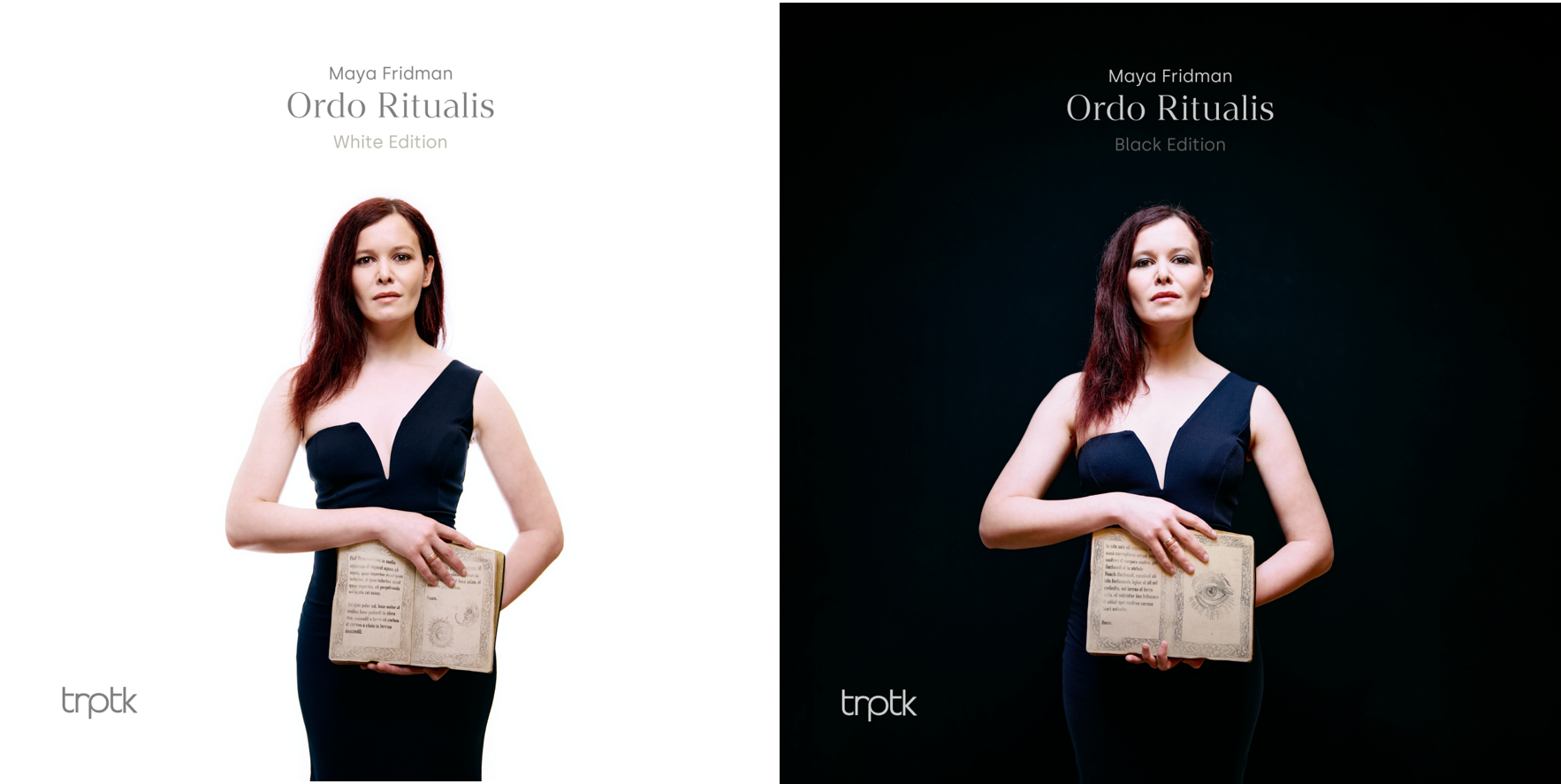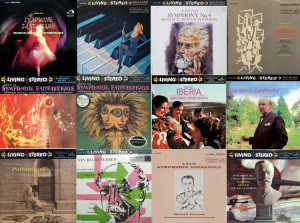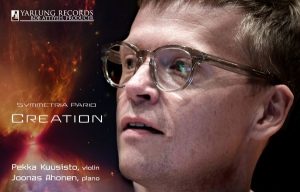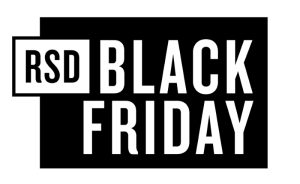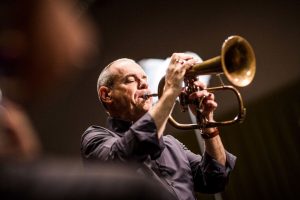Bob Witrak's High Definition Tape Transfer (HDTT) has long been known for its excellent transfers from analog reel-to-reel tape. Both Dr. David and I have written many articles about Bob's very fine digital releases of vintage classical and jazz recordings, many of which sound better than the digital reissues from the major labels.
And now HDTT is expanding its range of releases to include transfers from vinyl LP.
Whoa! you say. Needle drops?
Well, yes. But needle drops of a quality few of us have ever experienced before. Here are the first two releases in this new series, the first transferred from an RCA Living Presence "Shaded Dog" original pressing, and the second from a London "Blueback" original pressing. Both are amazing!
Schubert Symphonies No. 5 and 8 "Unfinished", Fritz Reiner, Chicago Symphony Orchestra, from an RCA Living Stereo "Shaded Dog" original pressing LP, HDTT 1958 2023 (DXD) HERE
This is the first release in this new series—a transfer from an original pressing RCA Living Stereo LP. And it sounds stunningly good for a needle drop. No surface noise, very clean, very quiet. It sounds like my memory of this LP: just slightly lacking in ultimate transparency and a little plummy. But the frequency extension and dynamics are very good. If I'd not been told, I don't think I would have not known this was a transfer from the LP and not a transfer from a tape. I'll have more information about this new series below.
Rodrigo Concerto For Guitar, Falla Nights Gardens Of Spain, Narciso Yepes, Ataulfo Argenta, National Orchestra Of Spain, from a London "Blueback" original pressing LP, HDTT 1957, 2023 (DXD, DSD256) HERE
This transfer from a London "Blueback" original pressing LP (recorded by Alhambra) is the second release in this series. And it is stunningly good! The sound quality is very open, surface noise is virtually nonexistent, frequency extension is very wide both in bass and treble, and percussive transients are sharply, crisp defined. I only wish my London Blueback LPs had sounded this good.
Even better, this performance of the Rodrigo Concerto for Guitar and Orchestra, with Narciso Yepes as the soloist, is quite possibly the best performance of this concerto in the catalog. I've listened to many alternative performances, but I always come back to this 1957 recording as the best performance, with the best recording quality, of any. The performances of both the Rodrigo Concerto for Guitar and the Falla Nights in the Gardens of Spain are excellent.
The sound quality here is more open than the first release, the Reiner Schubert Symphonies from an RCA Shaded Dog LP. Presumably that is simply a function of the difference between the source LPs because there has been no change in Bob's vinyl playback setup.
That we can now have these performances from LP available in high resolution digital is a wonderful gift to those of us who no longer have LP playback. For many still with LP playback, this release is nonetheless a great gift because finding these LPs in such excellent playback condition is both exceedingly difficult and exceedingly expensive.
Many of us who have listened to HDTT's high resolution digital releases from tape over the years recognize that their releases often sound noticeably better than the digital releases from the major labels—in fact, almost consistently so. But, there are a finite number of tapes in the world from which to make transfers. Transferring from LP opens a huge range music to which HDTT might never otherwise have access. It presents a great benefit to those of us who value getting the best possible sound quality from these treasured vintage recordings. These first two releases in the VRR series give me high confidence for the excellent sound quality we can expect the future.
Background about The Vinyl Record Restoration Series (VRR)
Bob writes about the decision to start offering transfers from LPs in his blog post HERE, where he also provides a free downloadable sample track at 24/192 resolution. I suggest you take a listen to the sample track for yourself. The DXD and DSD256 files offered for sale, and to which I'm listening, sound even better.
He cautions: make no prejudgments just because the transfer is not from tape. In some cases, given advances in LP playback and the aging of the source tapes, the vinyl may actually sound better. This is what he has found in a number of cases comparing the sound of the the LP to sound of some 15ips 2-track tape dubs.
The vinyl playback system Bob has settled on after a lengthy period of testing and evaluation consists of the following:
- VPI HW-40 Anniversary Direct Drive Turntable, with FB-12 Gimbal arm
- Ortofon MC Anna Diamond Cartridge
- Merrill Audio Jens Phono Stage Preamplifier
(Bob says "We tried many different phono stage alternatives, and Merrill's Jens Phono Stage had by far the best sonics of any we tried.") - Purist Audio Cables
- Synergistic Research UEF Record Weight & UEF Record Mat
- Power Conditioning by the Shunyata Everest 8000
- Degritter ultrasonic record cleaner
In an email exchange, Bob told me that "I'm getting such a clean transfer with the Ortofon Cartridge—it's really incredible. I have never used a cartridge that has such little groove noise. It made these transfers so much easier, and the tracking is really something." And this is important because so many of us long-time vinyl listeners have always assumed that the background noise we're so used to filtering out in our listening is "surface noise"—noise from the stylus against the groove walls.
Bob argues "Not so." He contends that best new cartridge designs demonstrate that LP grooves can actually be very quiet. "What we previously assumed was unavoidable LP groove noise was actually cartridge noise. Advancements in turntable design can be equally dramatic. Improved electronics likewise play a large part."
And I completely agree with his contention because this is precisely what I found as I worked to improve my vinyl playback system back in the day. Better platter, lower noise. Better tonearm, lower noise. Better turntable bearing and suspension, lower noise. Better electronics, lower noise. Better cartridge, often but not always lower noise.
But, each change in component selection brings its own set of variables with respect to other sonic characteristics. The choices involved are not only about reducing noise (obviously, no?). These component choices affect every possible sonic factor we assess in our audio playback. Bob's choices ultimately reflect his personal listening priorities for timbre, resolution, spatial reproduction, dynamics, and on and on. That his listening priorities appear to so closely align with my own is gratifying. You may have different listening priorities, but I doubt that anyone would disagree that Bob's vinyl playback chain is a very capable, sonically quite excellent, playback system. These first two releases certainly demonstrate a VERY HIGH standard of sonic excellence.
My expectation is that we, as listeners, will have much to look forward to in this new VRR series.
What's coming next?
I've been told that coming soon (perhaps not next, but soon) will be a transfer of the exceedingly wonderful double LP, Orientale, with Nathaniel Rosen, cello, and Doris Stephenson, piano. HDTT obtained rights to the original master tapes, but they've decided that a transfer from the test LPs actually sounds better given the aging of the tapes and some challenges with replicating the unique EQ applied by recording engineer David Hancock. Stay tuned! (Link to Discogs page about Orientale.)





